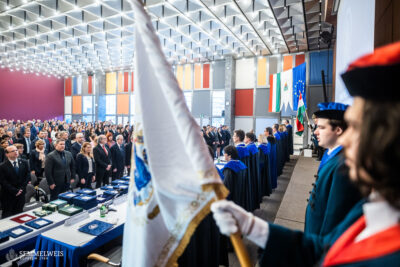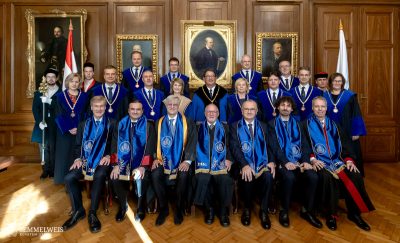A Hungarian-born researcher, Dr. Botond Roska has been awarded the 2019 Louis-Jeantet Prize for Medicine for the discovery of basic principles of visual information processing and the development of therapeutic strategies, such as gene therapy, to restore vision in retinal disorders. Dr. Botond Roska received his medical degree from Semmelweis University, and currently works in Basel, Switzerland.
 Dr. Botond Roska and his research group have investigated how various cell types in the visual system extract visual information from the environment. Based on molecular mechanisms, they have designed novel gene therapies for restoring vision in genetic forms of blindness. By interacting with strategically important retinal cell types in the blind retina, the Swiss research group is able to restore the delivery of visual information to the central nervous system of the patient.
Dr. Botond Roska and his research group have investigated how various cell types in the visual system extract visual information from the environment. Based on molecular mechanisms, they have designed novel gene therapies for restoring vision in genetic forms of blindness. By interacting with strategically important retinal cell types in the blind retina, the Swiss research group is able to restore the delivery of visual information to the central nervous system of the patient.
The researcher, who was born in 1969, obtained his M.D. at Semmelweis University, a Ph.D. in neurobiology from the University of California, Berkeley and studied genetics and virology at Harvard University. He is currently co-director of the Institute of Ophthalmology Basel (IOB) where his research group operates; part of his research is pursued at the Friedrich Miescher Institute for Biomedical Research (FMI). Established in 1986, the Louis-Jeantet Prizes (which are sometimes referred to as the “anteroom” of the Nobel Prize) are awarded to two or three medical researchers a year; Dr. Botond Roska is the first Hungarian scientist to receive the honor. Last year, he was also recognized with the prestigious W. Alden Spencer Award from Columbia University.
Photograph source: IOB
Featured image (illustration): Attila Kovács – Semmelweis University


